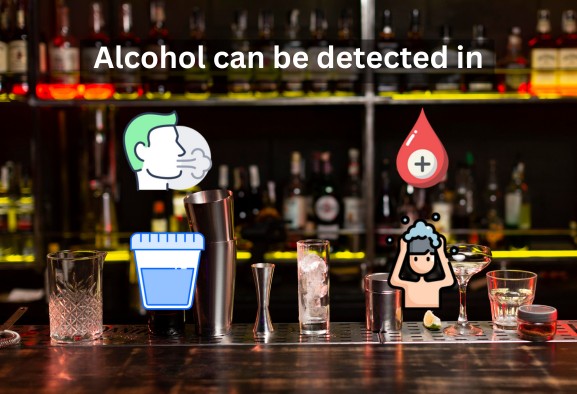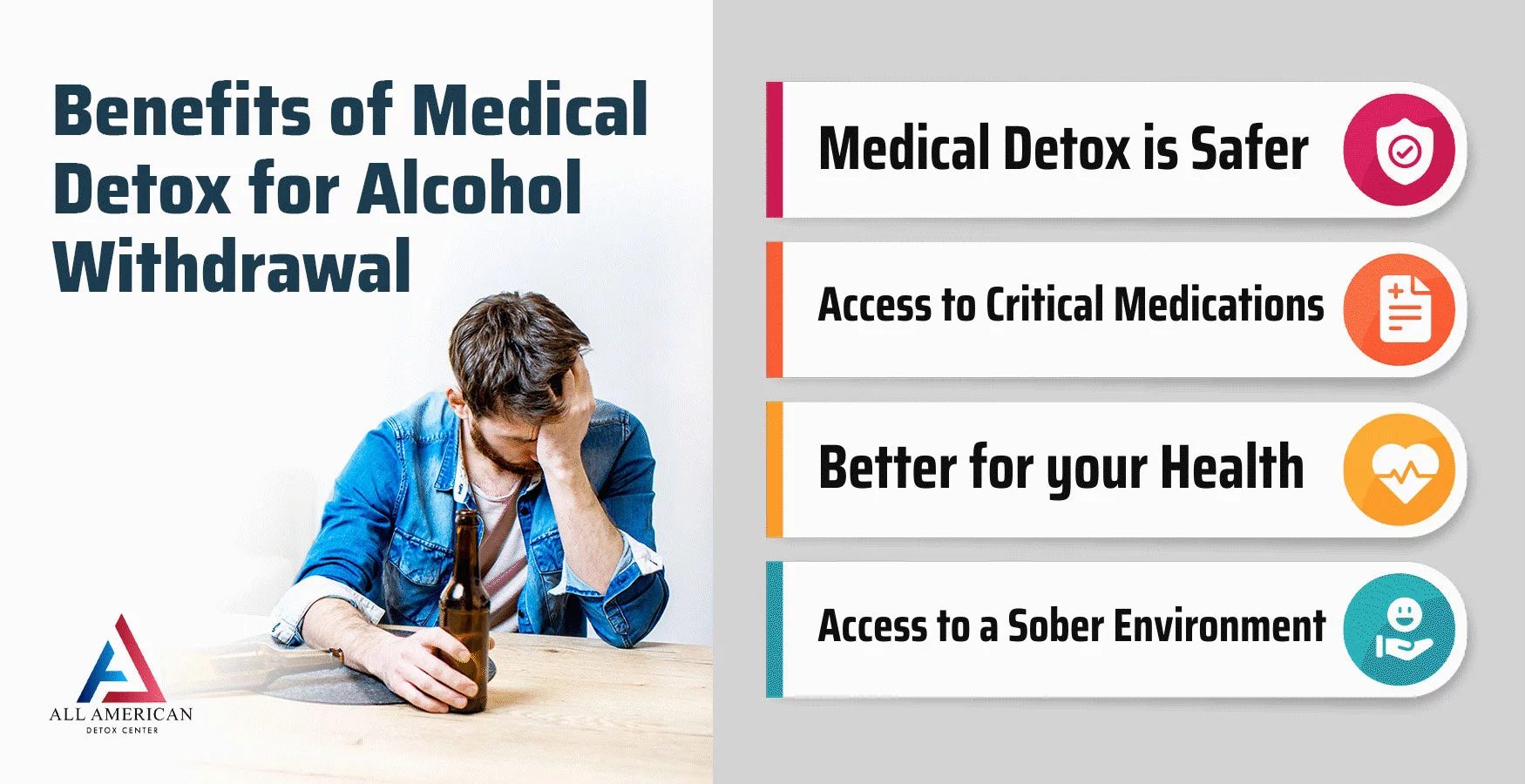When it comes to understanding the impact of alcohol on your system, the first question that arises is, “How long does alcohol stay in your system?” This query is relevant and crucial for various reasons, from workplace testing to personal health considerations.
What are some Alcohol Testing Methods?
There are several alcohol testing methods, each with its advantages and disadvantages. Here are some of the most common:
Breath tests:
These are the most common types of alcohol tests used by law enforcement to screen drivers for DUI. Breathalyzers measure the amount of alcohol in your breath, which is proportional to the amount in your blood.
Blood Tests:
For a more precise measurement, blood tests are often conducted. This method directly measures the alcohol concentration in the blood, providing a clearer picture of the individual’s current state. However, it’s essential to note that the detection window may vary.
Urine tests:
Urine tests are less standard than breath or blood tests, but they can be used to detect alcohol use for up to several days after drinking. They are not as accurate as blood tests, but they can be a good option if a blood test is impossible.
How Long to Metabolize Alcohol?
The time it takes to metabolize alcohol varies depending on several factors, but as a general rule, it takes the body about one hour to process one standard drink.
Influential Factors on Alcohol Metabolism:
- Body Weight and Composition: Individuals with higher body weight metabolize alcohol more efficiently, courtesy of increased water content.
- Gender Disparities: Women generally experience a slower alcohol metabolism compared to men, owing to variations in water content and enzyme levels.
- Alcohol Type Matters: The nature of the alcoholic beverage matters; spirits typically undergo faster processing than beer or wine.
- Impact of Food Intake: Alcohol absorption accelerates on an empty stomach, leading to a swifter metabolism.
Furthermore, it’s important to distinguish between metabolization, the process of breaking down alcohol, and detection, which refers to “How Long Does Alcohol Stay in Your System?”

Alcohol can be detected in:
- Blood: for up to 12 hours
- Breath: for 12-24 hours
- Urine: for 12-72 hours (depending on the test)
- Hair: for up to 90 days
Here are some Health Benefits of Quitting Drinking Alcohol.
What are some Signs of Alcohol Overdose
Recognizing signs of alcohol overdose is crucial, as it can be a life-threatening emergency. Here are some key signs to watch out for:
- Confusion or Unconsciousness: The person may be unable to stay awake or respond to stimuli. Unconsciousness is a critical sign of alcohol poisoning.
- Vomiting: Continuous or severe vomiting is a common symptom. Vomit can pose a risk of choking or aspiration.
- Seizures: Seizures can occur as a result of alcohol poisoning and require immediate medical attention.
- Slow or Irregular Breathing: Breathing may become sluggish, irregular, or even stop altogether. It is a severe sign of alcohol overdose.
- Hypothermia or Hypotension: The person may have a low body temperature (hypothermia) or low blood pressure (hypotension).
- Pale or Blue Skin: Skin may appear pale, clammy, or bluish, indicating a lack of oxygen.
Check out the more detailed look at Signs of alcohol addiction.
What are Some Different Types of Alcoholic Drinks?
The type of alcoholic beverage consumed plays a significant role in determining how long alcohol stays in your system. Distinct drinks have varying alcohol content, affecting metabolism and, consequently, detection duration.
Beer:
Beer, with its lower alcohol content, typically exits the system more slowly. It means a longer detection window compared to beverages with higher alcohol concentrations.
Wine:
Wines fall in the middle ground, with moderate alcohol content. While not as prolonged as beer, the detection window for wine is still noteworthy.
Spirits / Hard Liquor:
Hard spirits, such as vodka or whiskey, boast higher alcohol concentrations. Consequently, they tend to exit the system more rapidly, resulting in a shorter detection window.
What Happens to Your Body When You Stop Drinking?
Detoxification:
The initial weeks of abstaining from alcohol trigger a remarkable detoxification process within your body. As your liver takes the lead, expelling toxins and purifying your system, you’ll witness a surge in energy levels.
Rejuvenating Your Skin:
Alcohol’s dehydrating effects are no secret, often leaving dead skin. However, once you cease alcohol intake, the body’s natural hydration mechanisms kick in. Prepare to be amazed as your skin regains its glow, bidding farewell to the dullness associated with alcohol consumption.
Shedding Pounds:
The caloric content in alcoholic beverages is a silent contributor to weight gain. When you eliminate alcohol from your routine, you initiate a journey towards shedding those extra pounds. Combined with a balanced diet and regular exercise, quitting alcohol becomes a potent catalyst for achieving your weight loss goals.
Mental Clarity:
Alcohol’s impact on cognitive function is undeniable. The decision to stop drinking opens the door to mental clarity and enhanced focus. Say goodbye to the foggy feeling that often accompanies alcohol consumption and embraces a sharper, more alert mind.
Quality Sleep:
While alcohol may induce drowsiness, its disruptive effects on sleep patterns are well-documented. As you distance yourself from alcohol, prepare for a sleep transformation.
Check out our latest blog on What Are The Stages Of Alcohol Withdrawal?
What Is The Alcohol Detection In Urine?
Urine tests can detect alcohol or alcohol metabolites in your urine. Most urine tests detect alcohol up to 12 hours after your last drink. Advanced urine tests, however, may be able to detect alcohol three days after drinking.
Conclusion
Starting the path to sobriety is a brave step, and at All American Detox, we are committed to helping you overcome your alcohol addiction.
We customize our treatment plans to meet individual needs because we understand that every person’s journey is distinct. Our skilled staff performs in-depth evaluations to develop individualized plans that consider all facets of the addiction.
Check out the Types of Alcohol and Drug Detox Programs for Recovery.
If you are seeking a transformative and personalized alcohol addiction treatment experience, contact All American Detox today. Your journey to recovery begins here.




